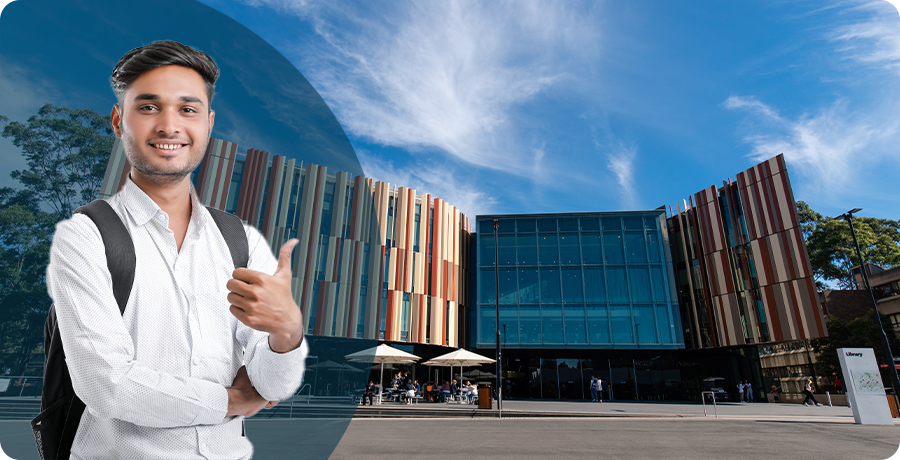Studying abroad can be one of the most important and valuable experiences in a student's life. It offers the chance to explore new cultures, gain a global perspective, and enhance personal growth. The role of health and travel insurance becomes important. In this blog, we'll explore why having proper insurance is essential for ensuring your study abroad experience is safe and stress-free.
Studying in a foreign country can be exciting, but it is essential to acknowledge that the unexpected can happen at any time. From sudden illnesses and accidents to lost baggage and travel disruptions, these unforeseen events can dent your study abroad plans. You will face challenges without having the right insurance plans.
Health Insurance:
When selecting health insurance for your study abroad experience, certain critical elements should be part of the coverage:
- Hospitalization: Coverage for hospital stays and associated medical expenses, including surgeries and treatments.
- Outpatient Care: Coverage for doctor visits, diagnostic tests, and treatments that don't require hospitalization.
- Prescription Medications: Coverage for essential medicines prescribed by healthcare providers.
-
Emergency Medical Evacuation
If you have a severe illness or injury, in the worst case, it may require evacuation or repatriation to your home country for treatment.
In the unfortunate event of a fatality while abroad, this coverage helps cover transport expenses back to your home country.
-
In-network providers in Your Study Abroad Location
Check whether the insurance plan includes a network of healthcare providers, clinics, or hospitals near your study destination to ensure easy access to medical care.
-
Deductibles and Copayments
Check the deductibles, which include the amount you pay before the insurance kicks in and the copayments, that is, the fixed amount you pay for each service, to gauge your out-of-pocket expenses.
Ensure the insurance covers your study program's entire duration, including any additional travel time before or after your academic term.
Travel Insurance:
-
Trip Cancellation/Interruption: Sometimes, unexpected events can force you to cancel or cut short your study abroad journey. Travel insurance can cover non-refundable expenses like airline tickets and accommodation reservations.
-
Lost or Delayed Baggage: If your luggage goes missing or is significantly delayed, travel insurance can compensate you for the value of your lost items or provide an allowance for essential purchases. At the same time, you wait for your belongings to arrive.
-
Travel Assistance: Many travel insurance policies offer 24/7 assistance services that can be invaluable in emergencies. They can help you find medical facilities, navigate language barriers, and coordinate your travel plans in case of unforeseen disruptions.
Selecting the Right Insurance
When choosing health and travel insurance for your study abroad experience, it's crucial to consider the following:
-
Coverage Limits: Ensure the insurance provides adequate coverage for medical expenses, trip cancellations, and any specific needs.
-
Network Providers: For health insurance, check the list of in-network medical facilities and providers in your study abroad destination to ensure easy access to quality care.
-
Duration of Coverage:Ensure your insurance covers your stay abroad, including any additional travel before or after your study program.
-
Cost and Premiums:Compare quotes and premiums to find a policy that fits your budget while offering the necessary coverage.
Apart from the health and travel insurance, you can take these additional measures to ensure your safety:
1. Preparation and Research
-
Take time to understand your new destination.
-
Look up local laws, any safety tips specific to that area, and the customs or traditions you should know. This will help you blend in better and stay safe.
-
Check for any travel warnings or advisories your home country might have issued about the place you're going to.
2. Emergency Contacts
Having essential numbers on hand is important. Make sure you have local emergency service numbers saved in your phone.
3. Language and Culture Basics
Learning a bit of the local language and understanding the culture can make a big difference. It helps you communicate better and shows respect for your place.
4. Stay Aware and Safe
Being alert to your surroundings is vital. Watch out for your belongings, especially in crowded or touristy areas.
5. Travel Caution
If you plan to explore other places while studying abroad, let someone know your travel plans. Research the areas you plan to visit and ensure they're safe for tourists. Stay cautious, especially in unfamiliar or new places.
6. Know Your Support System
Your new school or program likely has support services for international students. They can pass on the information on staying safe, provide counseling, and help you settle into your new environment.
7. Emergency Kit
Having a small kit with essential first-aid items and any important medications you might need in an emergency is a good idea.
Your study abroad experience is a time for personal growth, learning, and adventure. However, it's essential to be prepared for the unexpected by securing proper health and travel insurance. In short, gearing up for your study abroad experience includes researching, keeping important contacts close, and staying connected. Learning a bit of the local language and respecting the culture can contribute to your safety. Taking care of yourself, informing others about your travel, and relying on your school's support are essential. Plus, having a small emergency kit ensures you're ready for a safe and incredible journey!












